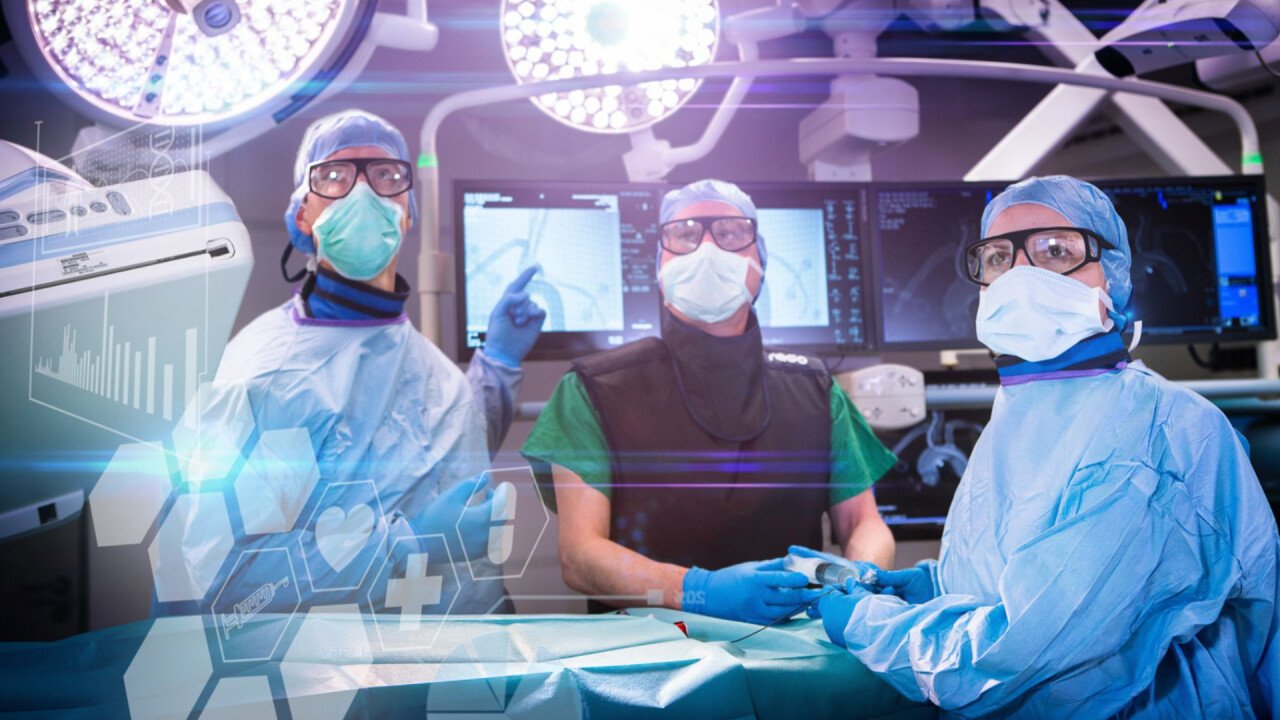In the DAIOR research project, Fraunhofer IPA is working with partners to realise the operating theatre of the future with the help of artificial intelligence (AI) and robot-assisted telesurgery. The aim is to analyse surgical data using AI methods in order to support operations in real time.
The aim of DAIOR is to use data to support medical staff in treating or operating on patients. The acronym is short for "Distributed Artificial Intelligence for the Operating Room": algorithms are to be trained by analysing data, optimising workflows, and using empirical values from previous operations.
In this way, A.I.-generated data analysis can help clinical staff improve patient care in real-time and independent of location. In the interdisciplinary consortium with expertise from medicine and technology, the Fraunhofer Institute for Manufacturing Engineering and Automation (IPA) is working together with the Institute of Image-Guided Surgery (IHU) and the Bosch Digital Innovation Hub (KTBW) in Stuttgart. The project is funded by the Federal Ministry of Education and Research.
Local knowledge as cross-location training data for AI model
The use of medical data is mostly limited to one location. Treatments are location-dependent because there are hardly any possibilities for data exchange in the healthcare system. Another challenge is the different formats of the data such as images, texts, and videos. These make it difficult to recognise correlations and use them for the treatment of patients. To ensure that this does not remain the case, the DAIOR project is training AI models with distributed learning approaches using the locally available knowledge.
"The knowledge can thus be used elsewhere without sensitive data leaving the respective location," says Johannes Horsch, Head of Medical Technology Assistance Systems at Fraunhofer IPA. In this way, distributed knowledge is bundled and made available regardless of location. "Through the methods of federated learning, training data from different locations can be used in DAIOR, even across national borders, while the data remains at the locations, thus ensuring the protection of patient data at the same time."
Location-independent operations with robot-assisted telesurgery
For location-independent robot-assisted telesurgery, an AI model is being developed in DAIOR that can compensate for delays in data communication on both sides by predicting the subsequent steps. "It works in a similar way to our brain," explains Horsch. "Our brain is constantly calculating immediately possible scenarios. The AI acts in exactly the same way." This is continuously supplied with data in real-time and is therefore able to predict the next steps and assist surgeons.
With this robot-assisted tele-surgery, operations could soon be carried out via the internet, regardless of location. This makes it possible to use free operating theatre capacities flexibly: Operations can be performed faster, and patients can receive better medical care. "This is a milestone in patient care, especially in emergency medicine, where seconds often matter, for example in the case of a heart attack or stroke," says Horsch. In addition, patients benefit from the fact that clinical staff have more time available for treatment.
